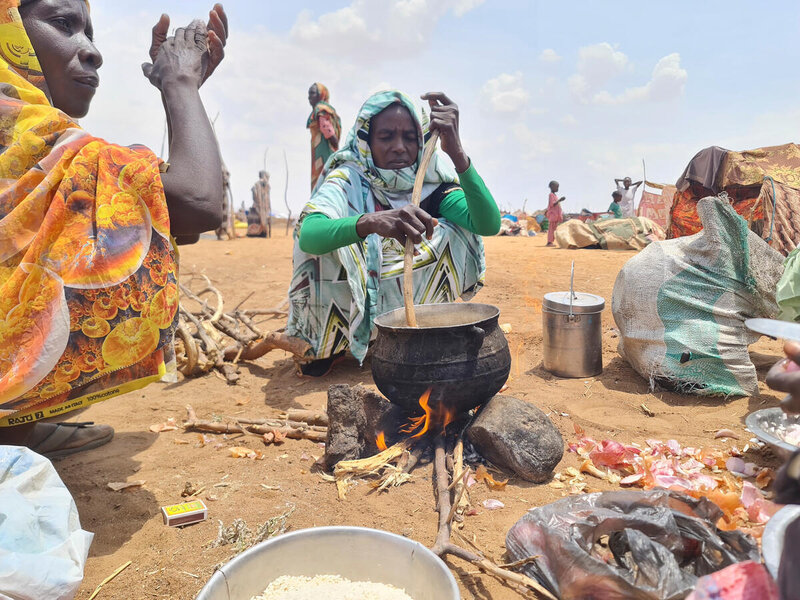- UN agencies warn starvation is imminent in El Fasher, North Darfur, Sudan.
- Humanitarian access has been blocked for over a year, leaving over 250,000 civilians in crisis.
- Rapid Support Forces have yet to approve safe passage for food convoys, despite clearances.
What We Know
The United Nations and its partners have issued urgent warnings that the city of El Fasher in North Darfur is teetering on the edge of mass starvation due to a prolonged siege and blocked humanitarian access.
The UN’s Humanitarian Chief Tom Fletcher said time is running out for the besieged population, emphasizing that escalating starvation and violence threaten to collapse what’s left of civilian survival.
According to the World Food Programme (WFP), no food convoys have reached El Fasher by road in over a year. Residents rely on limited digital cash assistance to buy whatever food remains on the market, where prices for staples like sorghum and wheat have soared by up to 460 percent compared to other regions in Sudan.
Community kitchens have largely collapsed. Many families have been forced to survive on animal fodder and food waste. Infrastructure including markets and clinics have been damaged or destroyed in ongoing attacks.
What They’re Saying
“WFP is ready with trucks full of food assistance to send into El Fasher,” said Corinne Fleischer, WFP’s Director of Supply Chain and Delivery. “We urgently need guarantees of safe passage.”
In June, a joint WFP and UNICEF convoy was attacked en route to El Fasher, killing five aid workers and destroying critical food and nutrition supplies. Though Sudan’s Humanitarian Aid Commission has cleared humanitarian movement from Port Sudan, the Rapid Support Forces have not confirmed support for a pause in fighting to allow convoy access.
“In El Fasher there was a lot of shelling and hunger. Only hunger and bombs. That’s why we left,” said eight-year-old Sondos, who fled with her family after surviving on only millet. They are now among the 400,000 displaced to Tawila, where WFP support is reaching them.
Wider Humanitarian Emergency
The situation in Sudan continues to deteriorate. The UN Office for the Coordination of Humanitarian Affairs (OCHA) reported ongoing shelling in El Fasher, rising malnutrition, and worsening cholera outbreaks across Darfur. North Darfur alone has reported over 3,600 cholera cases since late June.
Global acute malnutrition rates exceed emergency thresholds in many areas, reaching 34% in Mellit and nearly 30% in At Tawaisha. With the rainy season approaching, road access will soon be cut off to several regions, further threatening food deliveries and aid operations.
OCHA continues to press for a full humanitarian pause, protection for aid workers, and restoration of a full UN presence. The UN also urges international donors to urgently scale up flexible funding. WFP currently requires $645 million over the next six months to continue life-saving operations, including food, digital cash, and nutritional support for women and children.
Japan Marks 80th Anniversary of Hiroshima Bombing
Follow Virginia Times for regular news updates. Stay informed with the latest headlines, breaking stories, and in-depth reporting from around the world.
A global media for the latest news, entertainment, music fashion, and more.














